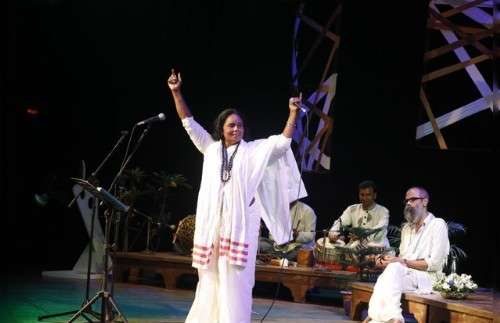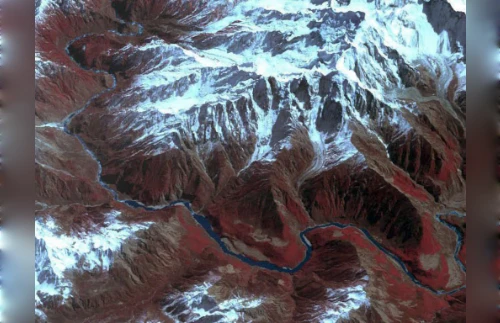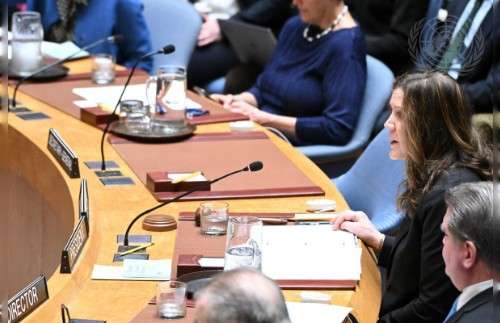Muzliza Mustafa, Iman Muttaqin Yusof, Tengku Noor Shamsiah Tengku Abdullah, Fitri Hazim and Nisha David/Kuala Lumpur

Malaysia’s election produced no clear winner Sunday, as results showed the coalitions of opposition icon Anwar Ibrahim and former Prime Minister Muhyiddin Yassin almost tied, and the long-ruling Barisan Nasional suffered a stunning defeat.
Anwar and Muhyiddin both claimed they had the support of a simple majority of lawmakers to form the government, although results announced after voting Saturday with 220 seats up for grabs showed neither had won the requisite 111.
With that result, voters seeking a return to stability after seeing three prime ministers in four years can expect more heated politicking ahead, and it appeared to have kicked off already in the early hours of Sunday.
Anwar, who at 75 may be looking at his last chance to be prime minister, said his Pakatan coalition had the requisite numbers to form the government.
“We have held several meetings and negotiations and as a result, I wish to inform you that as a majority bloc, we have managed to get the support of MPs to form the government, with the simple majority subject to due process to be submitted to the king, to make a discussion and a final decision,” he told a press conference in Shah Alam.
Moments earlier, Muhyiddin made a similar assertion.
“PN has enough seats to form a government,” said Muhyiddin, referring to his Perikatan Nasional coalition, adding that “this success is beyond our expectations.”
He said his bloc had received a letter from the palace listing what to prepare for the king, in an apparent reference to the requisite royal visit that formalizes the results. It was not immediately clear who else may have received such a letter.
In Malaysia, when the result is close, the king is the final judge of which political grouping has enough support to form the government.
“To ensure stability, PN is open to work with any parties that supports PN’s fight,” Muhyiddin said.
With its declared partners MUDA and DAP, Pakatan Harapan secured more parliamentary seats than any other coalition – 82 – according to results released by the Election Commission.
Muhyiddin’s Perikatan Nasional, together with the Malaysian Islamic Party (PAS) and Sabah-based GRS, was right behind, with 79.
As of 4 p.m. Saturday, more than 15 million of some 21 million eligible voters had cast ballots, according to the commission, which had yet to release final turnout numbers.
“No country in the world (to my knowledge) has so much commitment to vote, from overseas ballots being amazingly organized to the long (and expensive) trips home,” wrote political analyst Bridget Welsh on Twitter.
“Whatever happens tomorrow, ordinary Malaysians are the rock protecting their future,” said Welsh, an academic from the University of Nottingham Malaysia.
Malaysia’s parliament has 222 seats, but voting took place on Saturday for only 220 seats, due to the death of a candidate in one constituency, and a weather-related suspension at another.

Barisan defeat
Barisan Nasional, meanwhile, captured a paltry 30 seats – a stunning fate for the coalition that ruled the country until 2018, and, after clawing back to power unelected, had aimed to regain the people’s mandate by controversially declaring an early election in the midst of monsoon season.
For Barisan, it was probably a loss beyond what they foresaw. In 2018, when it was ousted, Barison won 79 seats.
“Barisan Nasional accepts and respects the decision by the people in this GE15. Barisan Nasional considers this result a big sign by the people to us,” said a statement by United Malays National Organization President and Barisan chairman Ahmad Zahid Hamidi.
He said the coalition that had ruled Malaysia uninterrupted from the country’s founding until 2018 would be focusing on “how to regain our party’s strength, especially in tackling the current challenges, and better understand the needs of the new generation.”
Several analysts had predicted that the new Malay-based coalition, Muhyiddin’s Perikatan, would steal some of Barisan’s supporters, but the scale of the steal was striking.
Political observers said that ethnic Malays upset about the corruption allegations surrounding UMNO president Zahid, as well as former PM Najib Razak’s conviction in a 1MDB-related case, could well turn to Perikatan.
Helping Perikatan along was a prominent conservative Muslim party, PAS, which Muhyiddin managed to entice away from Barisan. PAS won handsomely in its strongholds in the states of Kelantan, Kedah and Terengganu.
But whether race and religion has triumphed over issues such as worries over the economy and spiraling inflation will be known when more detailed results emerge in the days to come.
Anwar, for instance, campaigned against corruption and for a tolerant and multicultural Malaysia.
A Malay himself, Anwar’s Pakatan coalition includes the Democratic Action Party (DAP), which is a largely Chinese party. Anwar has said he is against race-based affirmative action and supports need-based aid.
Anwar and DAP helped toppled Barisan in the 2018 election through an unlikely alliance with prime minister Mahathir Mohamad, his one-time nemesis. Mahathir became prime minister, but his government lasted only 20 months before it collapsed due to infighting.
Mahathir, at the age of 97, lost his seat in parliament Saturday, just his second political defeat in a storied career that began in the 1960s.
Copyright ©2015-2022, BenarNews. Used with the permission of BenarNews.












